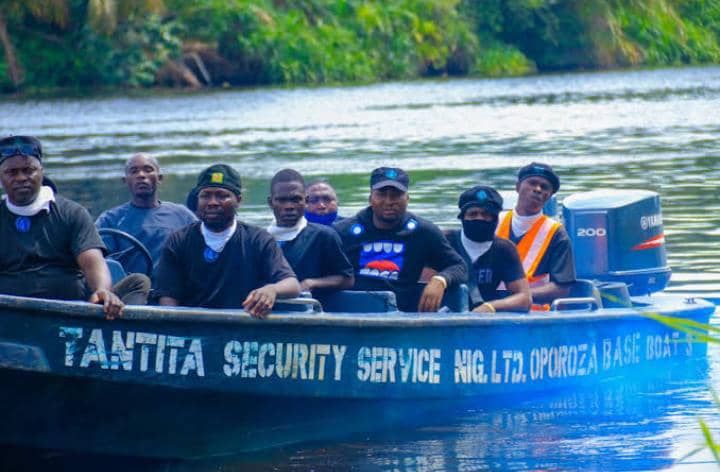News
Keir Starmer calls Kyiv ceasefire talks a ‘significant moment’

Sir Keir Starmer on Saturday, May 10, 2025, described recent diplomatic efforts in Kyiv as a “significant moment” in the push for a ceasefire in the war between Ukraine and Russia.
Although he acknowledged that it was not “the end of the process.”
Speaking to the BBC from the Ukrainian capital, the UK Prime Minister said the unity displayed by Ukraine’s allies was unparalleled since the conflict began.
He was speaking after a virtual summit of the so-called “coalition of the willing,”
The meeting, convened by Ukrainian Prime Minister Volodymyr Zelensky, brought together around 30 world leaders, some in person, others virtually.
The leaders collectively renewed their call for a 30-day unconditional ceasefire to begin on Monday.
They warned of “new and massive” sanctions on Russia’s energy and banking sectors if the Kremlin fails to comply.
Starmer emphasized the importance of this unified stance, stating, “We haven’t seen unity like this pretty well throughout the conflict.”
Among those physically present at the Kyiv summit were French President Emmanuel Macron, German Chancellor Friedrich Merz, and Polish Prime Minister Donald Tusk.
Other participants whp joined remotely included Italy’s Prime Minister Giorgia Meloni, Canadian Prime Minister Mark Carney.
Also, NATO Secretary-General Mark Rutte, and President of the European Commission Ursula von der Leyen, joined remotely.
The group of allied nations, collectively dubbed the “coalition of the willing,” was initially formed by the UK and France.
It was formed to support Ukraine with security guarantees, including the potential deployment of peacekeeping forces in the country as part of a future peace settlement.
Following the summit, US President Donald Trump reaffirmed his support for the ceasefire proposal during a phone call with Starmer.
According to Starmer, Trump was “absolutely clear that this is a demand that must be met.”
This was despite Russian President Vladimir Putin having rejected a similar proposal in March.
Starmer told the BBC that progress had been made during the meeting.
He cited both the unity of the demand and the coordinated consequences for non-compliance as pivotal developments.
“You’ve got unity in the demand, but also unity in what the response will be if the demand is not met.
We haven’t seen that sort of unity during this conflict,” he said.
He added, “I’m not going to pretend this is the end of the process, but this is a significant moment.
We now need to push on and make sure this happens.”
He further emphasized that enhanced coordination on sanctions, particularly on Russian oil, fossil fuels, and other financial assets—could significantly impact the Kremlin’s decision-making.
The response from Moscow was predictably hostile.
Kremlin spokesperson Dmitry Peskov criticized European leaders for what he described as “contradictory” and “confrontational” rhetoric.
He reiterated Russia’s longstanding position that a ceasefire could only occur if Western nations halt military support to Ukraine.
This was an idea that Kyiv’s allies have firmly rejected.
However, Peskov later conceded the proposal would be considered, calling it “a new development,” according to state news agency Tass.
The Kyiv summit came just one day after over 20 world leaders appeared alongside Putin at Russia’s Victory Day celebrations in Moscow.
The day marked the anniversary of Nazi Germany’s defeat in 1945.
The military parade, held in Red Square, featured prominent figures such as:
- China’s President Xi Jinping,
- Brazilian President Luiz Inácio Lula da Silva, and,
- Slovak Prime Minister Robert Fico, who leads a European Union member state.
Reflecting on the significance of the timing, Starmer said, “It was a hugely important, symbolic day here in Kyiv because there was a propaganda exercise in Moscow yesterday.”
He emphasized the importance of demonstrating that the same democratic values fought for 80 years ago during World War II remain relevant today.
When asked if he shares the public’s anxiety about growing global instability, Starmer admitted, “We are living in a more uncertain world and we’re in a different era of defence and security.”
The question highlighted ongoing tensions in the Middle East and between India and Pakistan.
However, he added that such worries don’t keep him up at night, as his focus remains on “what I can do—bringing people together, making significant steps today, and preparing with Ukraine for what might happen next.”
The coordinated move by the coalition, aimed at securing a temporary ceasefire and building momentum toward peace, represents the most unified diplomatic front seen in the conflict thus far.
For Diaspora Digital Media Updates click on Whatsapp, or Telegram. For eyewitness accounts/ reports/ articles, write to: citizenreports@diasporadigitalmedia.com. Follow us on X (Fomerly Twitter) or Facebook












